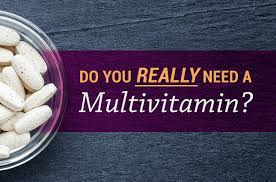Multivitamins: Helpful or Just Hype?

You know what? Walk into any pharmacy and you’ll see aisles lined with bottles promising sharper focus, glowing skin, or unstoppable energy. All from one capsule of multi vitamins and minerals. Sounds like a quick win, doesn’t it?
But here’s the thing—those same supplements can sometimes leave you feeling worse. Headaches, nausea, or even fatigue sneak in when you least expect it. Strange, right? Something meant to help ends up making you question whether you should’ve bought the bottle in the first place.
Honestly, that’s not rare. Multivitamins aren’t villains, but they’re not miracle workers either. And knowing the difference can make or break how you feel.
Why We Grab Them Without Thinking Twice
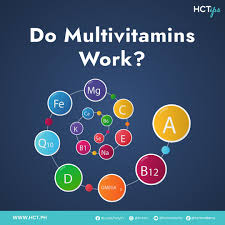
Let me explain. Life gets busy. Cooking perfectly balanced meals three times a day? That’s a luxury most people don’t have.
So supplements feel like insurance. A dad reaches for a multi for men thinking it’ll help with stamina. Vegetarians choose a vegetarian vitamin to cover B12 gaps. Students stock up on formulas with vitamins for energy to get through exams. Parents add gummies to their cart because they want their kids “covered.”
The intentions are good. But taking multi vitamins doesn’t always equal better health. Sometimes, you’re just doubling up on what your body already has plenty of. That’s where www.evaluatemymeds.com comes in handy—resources there can help you figure out if you actually need that pill or not.
What Happens After You Swallow That Pill

Picture this: you pop your daily multivitamin with your morning coffee. It breaks down in your stomach, slides into your intestines, and gets absorbed into your bloodstream. From there, your body decides: keep it, store it, or toss it.
Water-soluble vitamins like Vitamin C and B-complex? If you’ve got enough, your body flushes the extras. That’s why your urine sometimes looks neon-yellow after taking multi vitamins.
But fat-soluble vitamins—A, D, E, and K—stick around. They set up camp in your fat tissues and liver. And when the supply gets too high, that’s when side effects start rolling in. Think nausea, fatigue, or even liver stress. It’s a little like having leftovers that sit too long in the fridge—fine at first, but harmful if ignored.
The Side Effects Nobody Buys a Bottle For
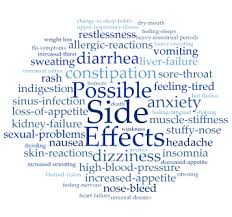
So, what can too many multi vitamins and minerals actually do? Here are a few not-so-fun possibilities:
-
Digestive chaos. Constipation, diarrhea, or just that unsettled stomach.
-
Headaches and fatigue. Ironically, the very symptoms you might be trying to fix.
-
Skin flare-ups. Allergic reactions from dyes or fillers.
-
Metallic taste. Too much zinc or copper can leave everything tasting off.
It almost feels unfair, doesn’t it? You bought them for vitamins for energy, but instead you’re holding your head wondering why you’re more tired than ever.
When Supplements Clash: Herb Medication Interactions

Now, here’s the kicker. Vitamins don’t exist in a vacuum—they mix and mingle with everything else in your system. And sometimes, those interactions are dangerous.
Pair St. John’s Wort with iron? Absorption drops. Mix Ginkgo biloba with Vitamin E? Your bleeding risk skyrockets. Garlic supplements plus blood thinners? Even a small cut could take longer to heal than you’d like.
This is why checking for herb medication interactions is so important. Use a herb drug interaction checker like the one at www.evaluatemymeds.com. It’s like Google Maps for your supplements—it shows you the detours and dead ends before you get into trouble. For extra guidance, you can also consult reliable sources like NIH Office of Dietary Supplements or MedlinePlus Herbs and Supplements.
Who Really Needs What?
Multi for Men – Hype vs. Help
Pick up a multi for men and you’ll see promises of vitality, strength, and heart health. Usually, these formulas are loaded with zinc, selenium, and B vitamins. But too much zinc? It can actually suppress your immune system. Not exactly the “stronger” effect the branding suggests. For breakdowns on safe dosages, www.evaluatemymeds.com has practical guidance.
Vegetarian Vitamin – Covering Gaps Without Overdoing It

For vegetarians, a vegetarian vitamin can be a smart safety net for nutrients like B12 and iron. But here’s the twist—many plant-based foods are already fortified. Stack supplements on top, and you risk tipping into excess. A good place to start is www.evaluatemymeds.com, where you’ll find plant-based options and advice for balancing food and supplements.
Athletes and the Energy Chase

Athletes often look for vitamins for energy, grabbing flashy blends that promise endurance and quick recovery. But when you combine those with standard multi vitamins and minerals, it’s like giving your body a double shot it didn’t ask for. Instead of focus, you get jitters. Instead of stamina, you crash. Energy should come from food, rest, and recovery—supplements are just the backup singers.
When the Balance Tips the Wrong Way
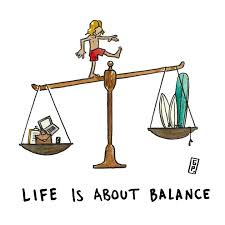
Here’s the thing: supplements can trick you into a false sense of security. You think, “I’m taking multi vitamins, so I’m fine.” But sometimes, that belief causes bigger issues:
-
Overload. Fat-soluble vitamins like A and D quietly build up until symptoms—nausea, bone pain, liver stress—start showing.
-
Conflicts with meds. Calcium interferes with thyroid medication. Vitamin K reduces the effectiveness of blood thinners.
-
Masking problems. Fatigue gets blamed on low vitamins, but the real culprit could be anemia, thyroid disease, or lack of sleep.
That’s why it’s critical to run your supplements through a check before stacking them. www.evaluatemymeds.com has simple guides that walk you through what’s safe and what’s risky.
Smarter Choices for Everyday Health
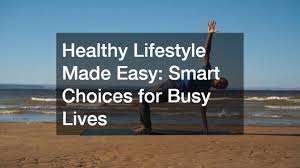
So, how do you actually make supplements work for you?
-
Read the label. Don’t just trust slogans—look at dosages.
-
Match to your lifestyle. If you’re plant-based, a vegetarian vitamin makes sense. If you’re a man, make sure a multi for men matches your lab results, not just your age bracket.
-
Skip mega-doses. Bigger isn’t better—it’s just riskier.
-
Check interactions. Use the herb drug interaction checker on www.evaluatemymeds.com or cross-reference with FDA guidance.
Everyday Tips to Avoid Side Effects

Here are some simple strategies for safer supplementing:
-
Take them with meals—it helps absorption and reduces stomach upset.
-
Space them out from medications like thyroid pills or antibiotics.
-
Stick to recommended daily values.
-
Keep a running list of all meds, herbs, and vitamins. Bring it to your doctor.
-
Pay attention—side effects sometimes whisper before they shout.
Final Thoughts: A Side Dish, Not the Main Course
Here’s the truth: multi vitamins and minerals aren’t the enemy, but they’re not the cure-all either. They’re more like a side dish—useful when paired with a balanced plate, but not enough on their own.
Whether it’s a vegetarian vitamin, a multi for men, or a formula promising vitamins for energy, the real question is: Do you need it, or are you just hoping for a shortcut?
You know what? The real foundation of health isn’t bottled—it’s in your meals, your sleep, your movement, and your stress management. Supplements can help fill cracks. But the structure? That’s on you. And if you need clarity, www.evaluatemymeds.com is a great place to start.
🌐 External Link:
-
NIH – Office of Dietary Supplements – official supplement fact sheets.
-
FDA – Dietary Supplements Safety – regulatory info and warnings.
-
Mayo Clinic – Multivitamins: Do They Work? – evidence-based perspective.
-
WebMD – Vitamin and Supplement Center – quick reference for consumers.
-
MedlinePlus – Herbs and Supplements – reliable database of herb/vitamin info.
🔗 Internal Link:
-
herb drug interaction checker → www.evaluatemymeds.com/herb-drug-interaction-checker
-
Medical Terms Made Easy → https://evaluatemymeds.com/index.php/glossary-simple-medical-terms/
-
Understanding your medical reports → https://evaluatemymeds.com/index.php/understand-my-medical-document/
